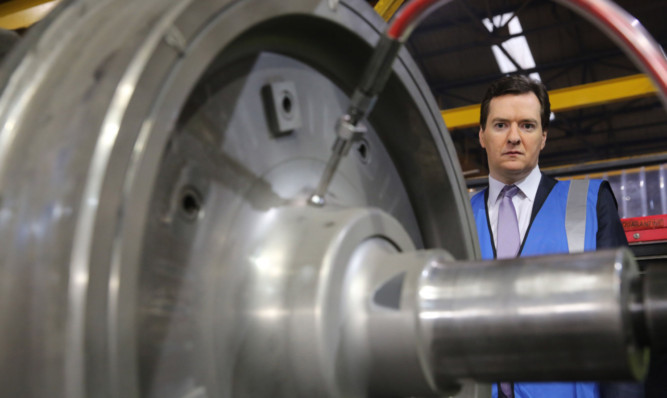
Passengers travelling to and from Scotland won’t feel any benefit from a high speed rail scheme costing tens of billions of pounds.
Remarkable evidence given to a committee of MPs revealed there is not expected to be any cut in the time it takes to get from Glasgow or Edinburgh to London once the first phase of the project is complete in 2026.
That’s despite the project, known as High Speed Two or HS2 for short, already costing taxpayers £42.6 billion and rising.
The landmark scheme will link up the nation’s biggest cities with high speed trains that can reach 225mph assuming it gets off the ground.
The scheme is already causing controversy in England, particularly among backbench Tory MPs who are soon to see parts of their leafy constituencies ripped up to make way for the new line. Labour sources have also hinted recently that they aren’t wedded to HS2, or more pertinently the massive bill it brings. The news that Scots can’t expect to see any significant improvement in journey times for another 20 years at least may weaken the case for HS2 further.
Phase one of the current high speed rail project will link London to Birmingham. Subsequent phases are planned to connect Manchester, Leeds, Glasgow and Edinburgh. There is already a high speed line from London to the Channel Tunnel.
However, the high speed trains will not be able to tilt. That means that north of Birmingham they will actually be slower than the tilting Pendolino models that currently work on the West Coast mainline. The tilting trains are particularly timesaving through Cumbria and the Scottish Borders where the tracks wind through the landscape.
Quizzed by MPs Peter Lloyd, policy manager at Transport Scotland the body that oversees public transport in Scotland admitted that though the time to travel from London to Birmingham may be cut, the rest of any journey from Birmingham to Glasgow or Edinburgh would actually be slower. Passengers won’t have the option of sticking to the titling trains on the West Coast line because that route is likely to be given over to slower stopping services and freight trains.
Milton Keynes MP Iain Stewart sits on the Transport Select Committee at Westminster and is among those scrutinising the current legislation aimed at paving the way for HS2 to get under way.
He said: “It’s a bit daft to go to all this expense and not get the full benefit.”
In the committee hearing Stewart put it to Lloyd: “If the high-speed trains do not tilt, the time gain on the high-speed part might be offset by slower journey times.”
Lloyd replied: “That is correct, yes.”
Stewart, a Scot with particular interest in the issue as he has family in Glasgow, explained: “I wanted to put down a marker about procuring the right rolling stock. I understand you can get high speed trains that tilt, which would be the best of all worlds.”
However, tilting high speed trains would cost more than is currently budgeted for pushing the bill, which has already risen by £8 billion, even higher.
Even when the high speed line to Manchester is completed in 2033 it will only shave around 15% off journey times between Scotland and London.
A spokesman for Transport Scotland said: “The Scottish Government is keen that high speed rail extends to Scotland faster and further than existing Department for Transport plans.
“That is a position shared by the Scottish Partnership Group for high speed rail, which has also identified the journey time implication of current plans briefly that the proposal for non-tilt operation north of the HS2 lines will carry a journey time penalty.”
However, the company set up to deliver the high speed rail project, HS2 Ltd, have flatly denied the claims made in parliament.
A spokesman for HS2 Ltd said: “From day one HS2 will provide direct benefits to Scotland. There will be hourly London-Glasgow services in each direction that will link the two cities in exactly four hours. No service offered today completes the journey as quickly.
“HS2 will provide a step change in the capacity and connectivity of Britain’s railways. It’s being built south to north in two phases first between London and the West Midlands to deal with the approaching capacity crunch on the West Coast Main Line.
“Its second phase beyond Birmingham will link the cities of the north as never before.”

Enjoy the convenience of having The Sunday Post delivered as a digital ePaper straight to your smartphone, tablet or computer.
Subscribe for only £5.49 a month and enjoy all the benefits of the printed paper as a digital replica.
Subscribe